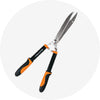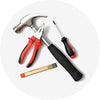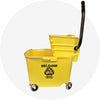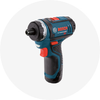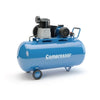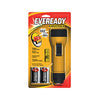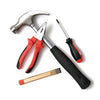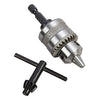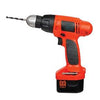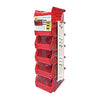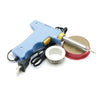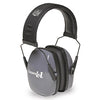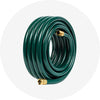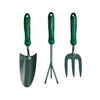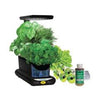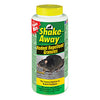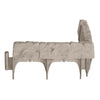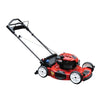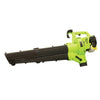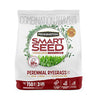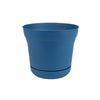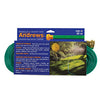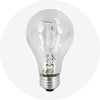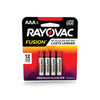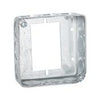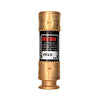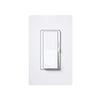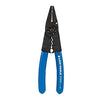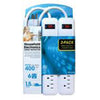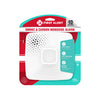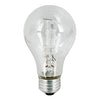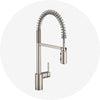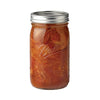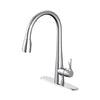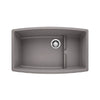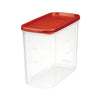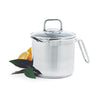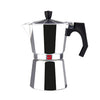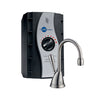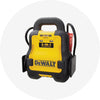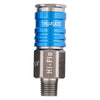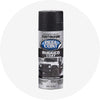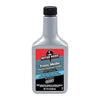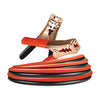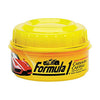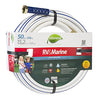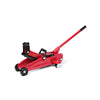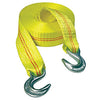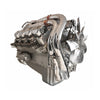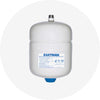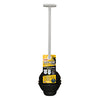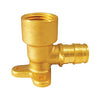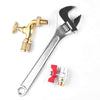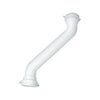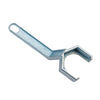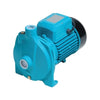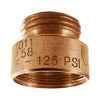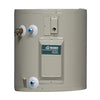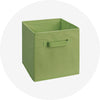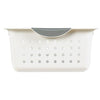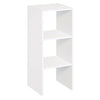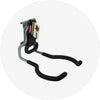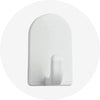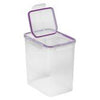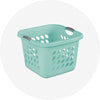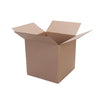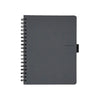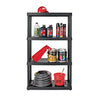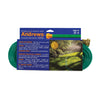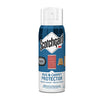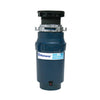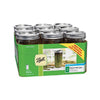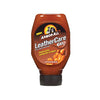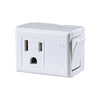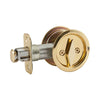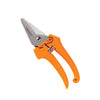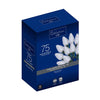7 Pool Cleaning and Maintenance Tips
∙ min read
Whether you have a permanent in-ground swimming pool in your backyard or just a temporary above-ground model you pull out for the summer, a thorough pool maintenance and cleaning routine is essential for keeping the water safe and fun for everyone to use.
Here are seven pool maintenance tips and must-have supplies to add to your cleaning checklist.
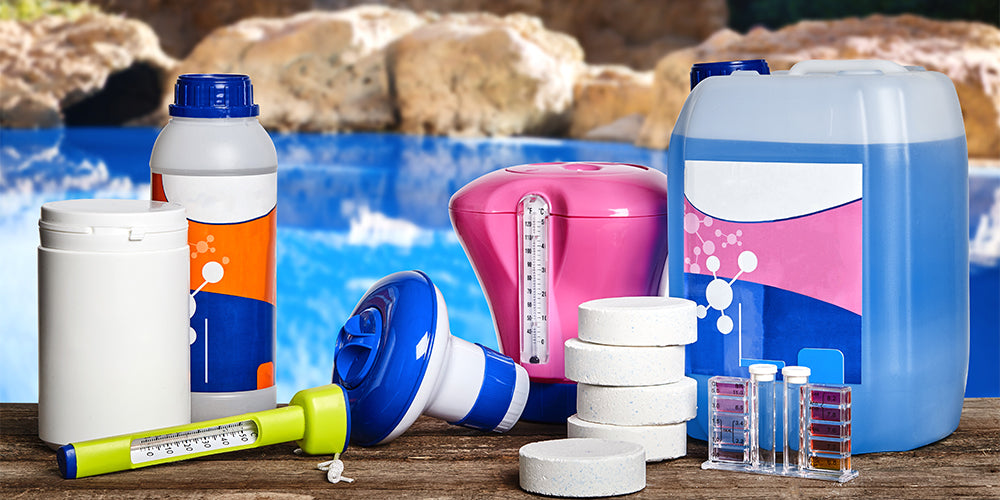
1. Know Your Pool Chemicals
While some pools use unique sanitization methods, such as AOP pool systems or saltwater, most use a combination of pool chemicals to keep the water fit for human use. Without the proper pool care, there are several waterborne illnesses that can inhabit your backyard pool, including Legionella, E. coli, Pseudomonas aeruginosa, and Cryptosporidium parvum.
You can often purchase sanitation kits that contain many of the pool chemicals and minerals you need, or you can buy single products as you need them:
-
Alkalinity increasers
Chlorine is one of the most critical bacteria-killing ingredients in your pool care, but there are different forms of this chemical to consider; you can purchase them as dissolvable granules or as chlorine tablets dispensed through a skimmer basket.
2. Maintain Proper Chemical Levels
These chemicals need to present in healthy amounts, as too little can be ineffective, and too much can be damaging or even toxic. A pool test kit is one of the most necessary pool accessories in which you can invest. You should frequently test, especially after weather events or when guests use your pool, to ensure the chemical levels are in the proper range.
There are three options you can consider for testing your pool water:
-
Test strips: designed to measure the presence of a particular chemical or set of chemicals, test strips are very inexpensive and simple to use. You simply need to dip them in your pool and compare the color to the included chart.
-
Liquid test kits: a more accurate option, liquid kits make you feel more like a chemist. You will need to get pool water samples from your pool and then use a dropper to add a specific amount of reagent.
-
Digital test kits: to constantly supervise your water chemistry, a digital tester uses electrodes to offer a digital measurement of chemical levels. This option may be more expensive, but it is the most reliable and can be used many times; keep it in mind for your pool maintenance cost.
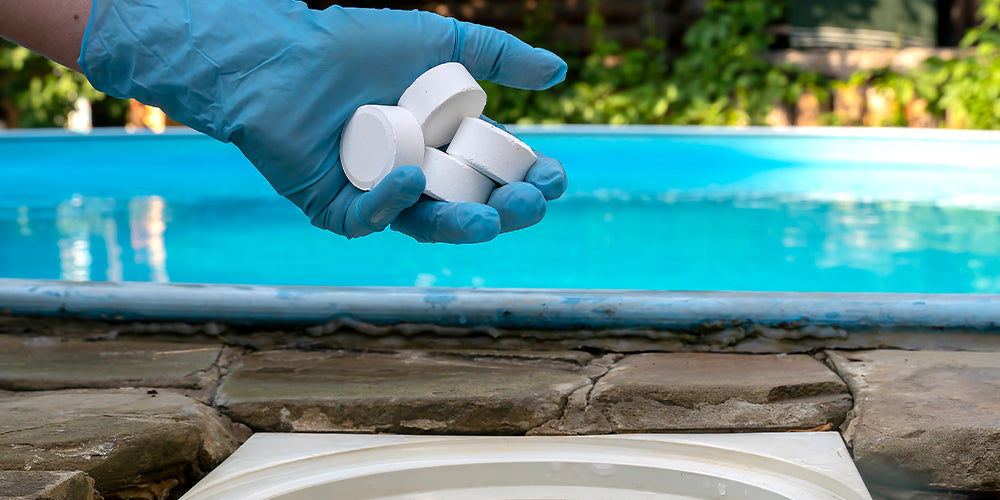
3. Clean Pool Filters as Needed
Pool filters are pool cleaning supplies used to remove bacteria and debris from the water and sometimes even help remove bacteria and algae. These can include sand, cartridge, or diatomaceous earth filters. Cartridge filters are the most common type used.
A cartridge filter needs to be cleaned at least every six months and maybe more, depending on the size of the pool, weather, UV exposure, frequency of use, and chemical buildup. You can tell when a pool filter needs to be changed when the pressure reaches 18 psi, or you notice a decline in water quality. You should also check and clean the pool filter after significant weather events and large parties. Fully clean the filter at the start and end of the swim season.
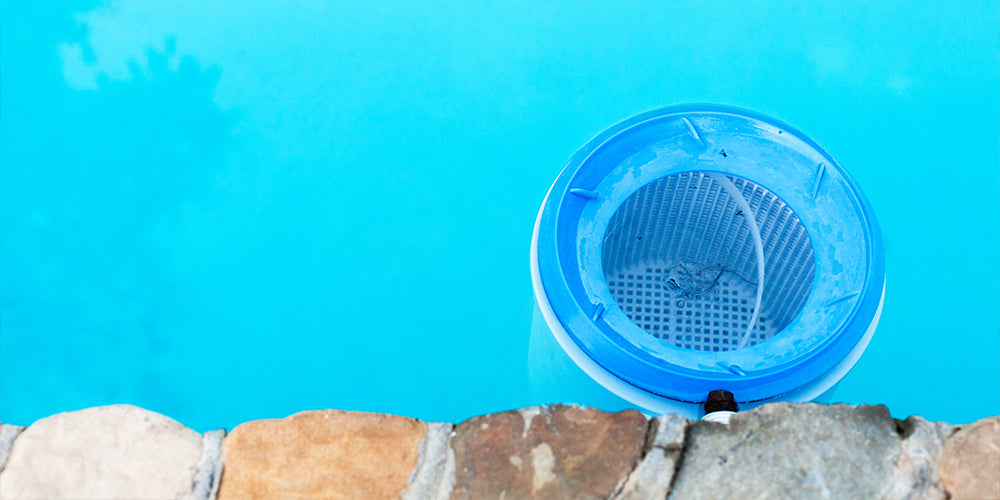
4. Invest in a Pool Vacuum
Manual and automatic pool vacuums can help remove dirt and debris from water that your skimmer or filter didn’t catch. These pool cleaning tools are ideal for various materials, including fallen leaves, dog hair, and algae. Perform a DIY pool vacuum session at least once or week for regular use, and also consider a spot clean after a windy day, following a pool party, or before storing for the winter.
5. Have a Skimmer Net on Hand
Even the best-kept pool is bound to catch a few bugs or debris in between or even during use. Invest in a skimmer net to remove any visible pieces of material from the pool surface before using it. Placing a pool cover can also help keep unwanted dirt out and minimize evaporation.
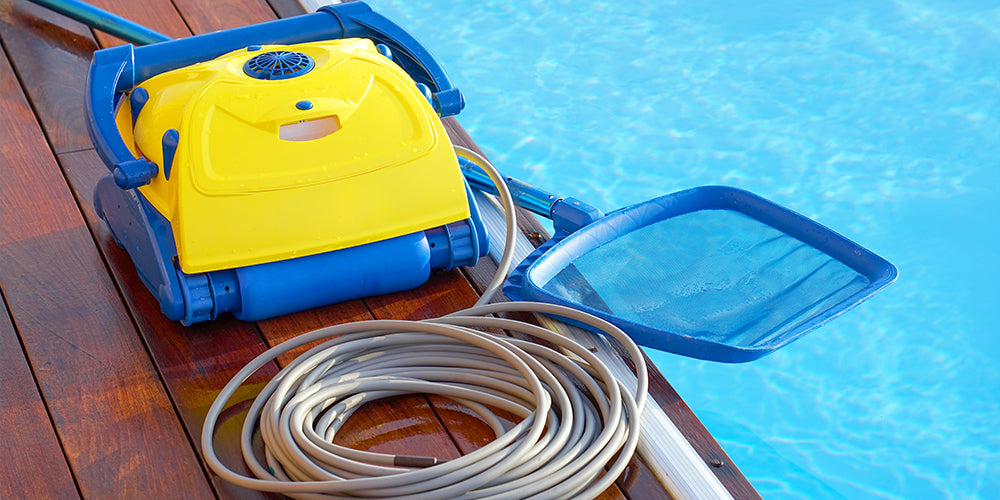
6. Build a Collection of Pool Brushes
Pool brushes are a helpful type of pool cleaning equipment for addressing the hard surfaces of your pool; there are different types used depending on the type of surface and purpose. A wire pool brush may be necessary for hard-set stains, while nylon models are more delicate, making them fit for cleaning above-ground vinyl pools. Smaller, rounded brushes can help clean corners, and long brushes are best for quickly cleaning large surfaces.
7. Throw in a Tennis Ball
A common pool cleaning hack is throwing a tennis ball into your pool as an extra cleaning aid. Many dirt and oils are released by people in pools, from dead skin cells to sunscreen lotion, and tennis balls can help absorb these.

A clean, functioning swimming pool gives you peace of mind that your family is safe while enjoying time splashing around. It’s much easier to keep up on general pool maintenance than to tackle tasks once they become a problem.
For all your pool equipment needs, visit our pool maintenance collection at Max Warehouse.
Shop Pools & Accessories Today
